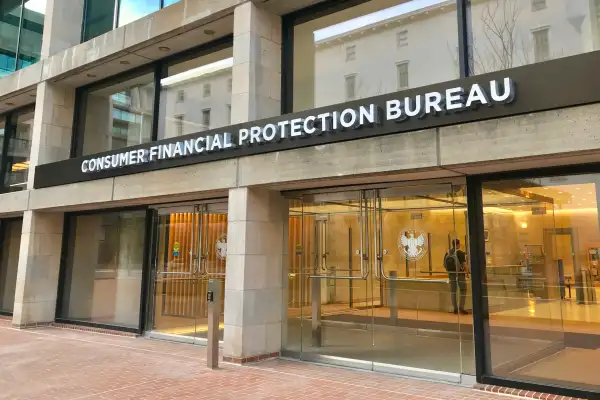The Government Needs Your Help Cracking Down on Fees From Banks and Mortgage Lenders

If you're tired of outrageous fees charged by banks, mortgage lenders and other financial institutions, a federal consumer watchdog group wants to hear your story.
The Consumer Financial Protection Bureau (CFPB) just launched a new initiative encouraging people to lodge complaints about the worst fees they've encountered. The CFPB — a federal agency established in 2011 to protect and enforce consumer financial laws — says it will use this feedback to crack down on “junk fees” charged by banks, credit unions, credit card companies, mortgage lenders and more, potentially saving Americans billions of dollars in the process.
“Many financial institutions obscure the true price of their services by luring customers with enticing offers and then charging excessive junk fees,” said CFPB Director Rohit Chopra in a press release. “By promoting competition and ridding the market of illegal practices, we hope to save Americans billions.”
Consumers have until March 31 to submit comments about fees to the agency.
If you believe you’ve been charged an excessive or unexpected fee by a financial institution, reach out to the CFPB by filling out this online form or calling (855) 411-2372.
What are junk fees?
The CFPB is casting a wide net for what it considers junk fees. Here’s a list of what you can reach out to the agency about:
- Excessive fees you believe were covered the baseline price of a product or service
- Fees you thought were too high for the product or service
- Unexpected fees
- Instances when you didn’t understand why certain fees were charged
How to avoid bank fees
In addition to reaching out to the CFPB with complaints about excessive fees, it's smart to be proactive and find ways to avoid fees on your own.
One fee you may have encountered in the past is a bank overdraft fee. Overdraft fees are charged when there isn’t enough money in your account to cover a transaction — often a purchase made with a debit card — but the bank covers it and charges you a fee for doing so.
The average overdraft fee is about $30, according to the CFPB. However, many of Money's favorite online banks don't charge overdraft fees. Some major banks, like Capital One and Bank of America, have also recently announced plans to reduce or eliminate overdraft fees.
If you're thinking about switching banks to avoid overdraft fees and other annoying charges, explore our list of best banks.
In some cases, you may also be able to get certain fees waived just by asking your bank. Our advice is to be polite and request to speak to a supervisor, if needed.
More from Money
5 Best Online Banks of 2021-2022
5 Best Credit Unions of 2021-2022

